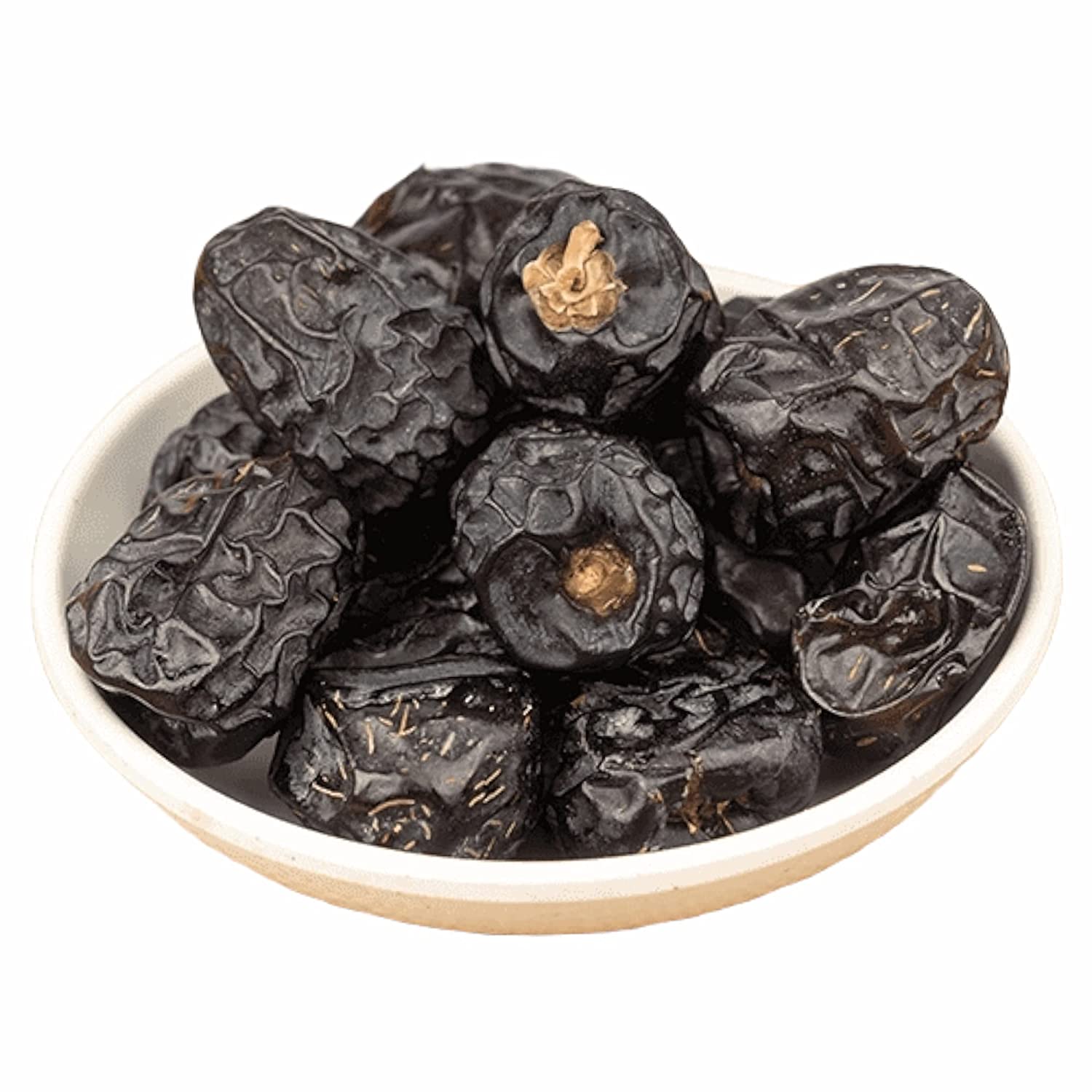Kurma Ajwa and the Art of Date Harvesting

Dates, nature’s candy, hold a special place in cultures worldwide. Among them, Kurma Ajwa, also known as Madina dates, stands out for its unique characteristics and historical significance. But how are these delectable fruits gathered from the palm trees? This blog post takes you on a journey to explore the captivating world of Ajwa dates and unveil the intricate process of date harvesting.
Unveiling the Allure of Kurma Ajwa: A Treasured Date Variety
Kurma Ajwa, meaning “dates of Ajwa,” originates from the holy city of Madinah in Saudi Arabia. Renowned for their:
- Distinctive Appearance: These dates are typically small to medium in size, with a dark brown to almost black skin and a soft, slightly wrinkled texture.
- Rich and Sweet Flavor: They boast a unique flavor profile, offering a balanced sweetness with subtle notes of caramel and a hint of smokiness.
- Cultural Significance: these dates hold significant religious importance in Islam, being mentioned in various hadiths (sayings of Prophet Muhammad).
These characteristics contribute to the high demand and revered status of this date variety, often referred to as the “Black Gold” of dates.
Cultural Significance:
Kurma Ajwa hold immense cultural significance beyond their inherent taste and appeal. Here’s a deeper dive into the various aspects that contribute to their revered status:
1. Religious Significance in Islam:
- Hadith References: Numerous hadiths (sayings of Prophet Muhammad) mention the virtues of consuming Kurma Ajwa. These references contribute to their popularity and association with good health and well-being.
- Sunnah Practice: Consuming dates during specific Islamic occasions, like breaking the fast during Ramadan or during the first few days after childbirth, is considered a Sunnah (practice) based on the Prophet’s actions.
2. Historical Significance:
- Early Cultivation: The cultivation of Ajwa dates in Madinah dates back centuries, with historical records mentioning their presence during the lifetime of Prophet Muhammad.
- Symbol of Hospitality: Offering these dates to guests has been a tradition in the region for centuries, symbolizing generosity and hospitality.
3. Cultural Symbolism:
- Gift-Giving: Ajwa dates are often considered a prized gift, particularly during religious occasions and cultural celebrations, signifying respect and appreciation.
- Symbol of Blessings and Good Fortune: Many cultures in the region associate Ajwa dates with blessings, good luck, and prosperity.
4. Modern-Day Relevance:
- Preservation of Tradition: The continued cultivation and consumption of these dates serve as a way to preserve cultural heritage and traditions for future generations.
- Economic Importance: The cultivation and trade of these dates contribute significantly to the local economy of Madinah and surrounding regions.
These various aspects, woven together, contribute to the unique cultural significance of Ajwa dates. They transcend their role as a simple fruit, becoming a symbol of faith, tradition, hospitality, and cultural identity. Understanding these layers of significance adds a deeper dimension to appreciating the history and ongoing relevance of these revered “Black Gold” dates.
A Delicate Dance: Exploring the Art of Date Harvesting
Date harvesting is a meticulous process, requiring careful planning and skilled execution. Here’s a glimpse into the different stages involved:
1. Ripeness Monitoring: Date growers meticulously monitor the ripening of the fruits, observing changes in color, texture, and sugar content. This ensures harvesting at the optimal stage for desired sweetness and quality.
2. Bunch Cutting: Traditionally, skilled climbers called “Qattasin” use sturdy ropes and specialized tools to access the date bunches high up in the palm trees. Nowadays, mechanical lifts are sometimes used for safety and efficiency.
3. Bunch Sorting and Selection: Harvested date bunches are carefully sorted and inspected. Unripe or damaged fruits are removed, ensuring only the best quality dates proceed to the next stage.
4. Individual Fruit Picking: Individual dates are gently hand-picked from the bunches to avoid bruising or damaging the delicate fruits. This crucial step requires careful handling to preserve the freshness and quality of the dates.
5. Post-Harvest Handling: After picking, the dates are carefully transported to shaded areas for sorting, cleaning, and grading. Proper handling minimizes post-harvest losses and ensures optimal quality throughout the storage and distribution process.
It’s important to note that specific harvesting practices may vary depending on the region, date variety, and available resources.
Conclusion: A Fruit of Patience and Expertise
Understanding the complexities of Ajwa dates and the intricate process of date harvesting fosters appreciation for these treasured fruits. From the meticulous monitoring of ripeness to the skilled hand-picking, each step contributes to the exceptional quality and cultural significance of these “Black Gold” dates. So, the next time you savor a Kurma Ajwa, remember the dedication and expertise involved in bringing this unique and delicious fruit from the palm tree to your plate.
Key Highlights:
- Kurma Ajwa, or Madina dates, are known for their unique appearance, rich flavor, and cultural significance.
- Date harvesting involves a meticulous process, including monitoring ripeness, bunch cutting, sorting, individual fruit picking, and post-harvest handling.
- Understanding the dedication and expertise involved in harvesting these fruits fosters appreciation for their quality and cultural significance.